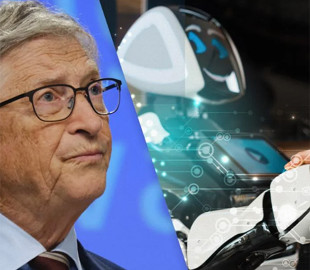
The world's tech leaders predict that the next phase of the new era of artificial intelligence will come in 2025. At the same time, their forecasts indicate that the prospects for AI this year still remain uncertain, writes Business Insider.
In particular, many executives believe that the interaction of people with technology will continue to change, so this is likely to affect jobs.
At the same time, Amazon CTO Werner Vogels emphasized in his December blog that more targeted use of technology is “changing our relationship with the digital world,” so people prioritize well-being over the desire to attract attention to themselves.
“Tomorrow's workers will be driven not only by financial success and career advancement, but also by a deeper desire to make a positive difference in the world,” Vogels added.
Clément Delange, CEO of Hugging Face, an artificial intelligence startup, predicts a more militant reaction to AI. He says “the first major public protest related to artificial intelligence” will take place in 2025.
This year will also show whether a prediction that Bill Gates has been making for over a decade will come true. In particular, he has repeatedly stated that by 2025, two-thirds of all jobs in the United States will require some education after high school.
At the same time, Vogels believes that in 2025, technology users will find more purposeful ways to use their devices. In particular, in his blog, he pointed to data related to social media use and mental health problems among teenagers in the US as “an indicator of the need to rethink our relationship with technology”.
“Every swipe, headline and notification is carefully designed to hook us,” Amazon's CTO noted.
In turn, Clément Delange predicted that other consumers will buy more futuristic devices, such as robots developed by Tesla and other robotics companies.
“At least 100,000 personal robots with artificial intelligence will be pre-ordered,” he wrote in LinkedIn.
In addition, Donald Trump is only a few weeks away from his inauguration, and he is already threatening to impose tariffs on imported goods. Michael Perica, CFO of software company Rimini Street, said the threat feels “imminent.” LendingTree economist Jacob Channell, in particular, said consumers will likely have to pay higher prices for their goods under Trump if he follows through on his promise. Companies will likely have to make some cuts to offset the impact of tariffs, Perica said. “We’re fully engaged with people to help them through this, to look at and evaluate what’s a ‘nice-to-have’ and what’s a ‘necessary’ project,” he added. Wig.

